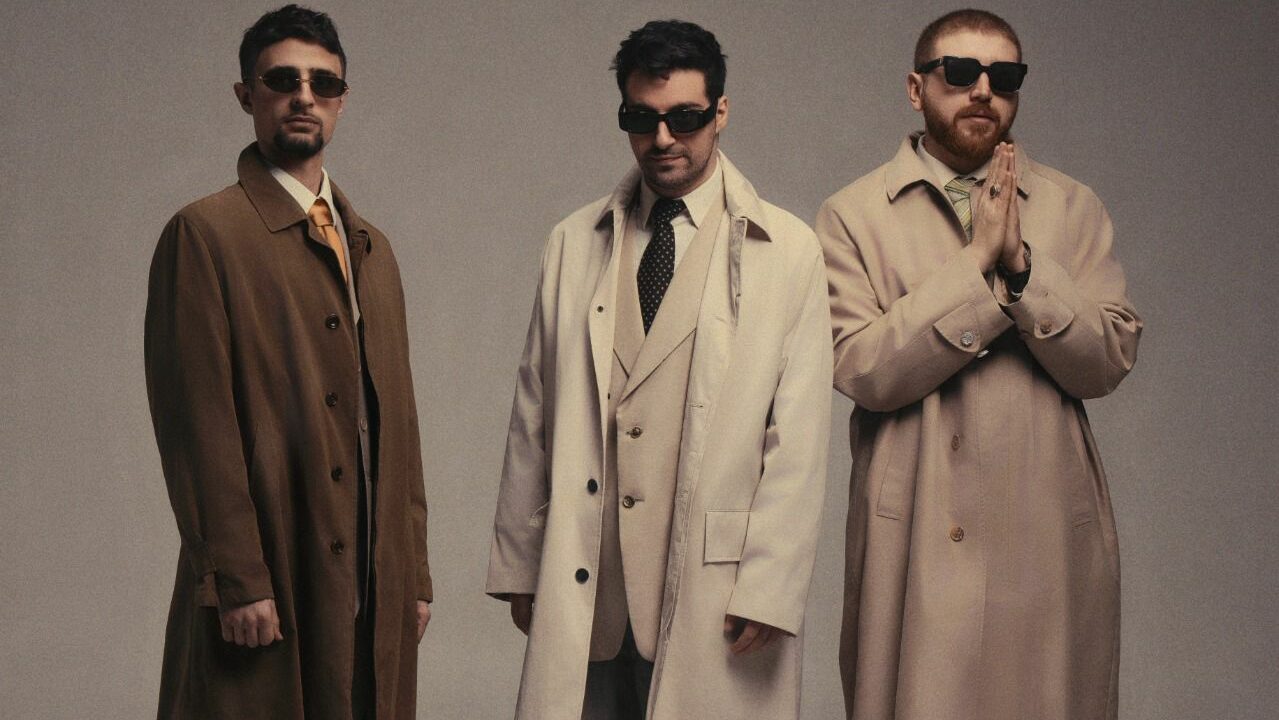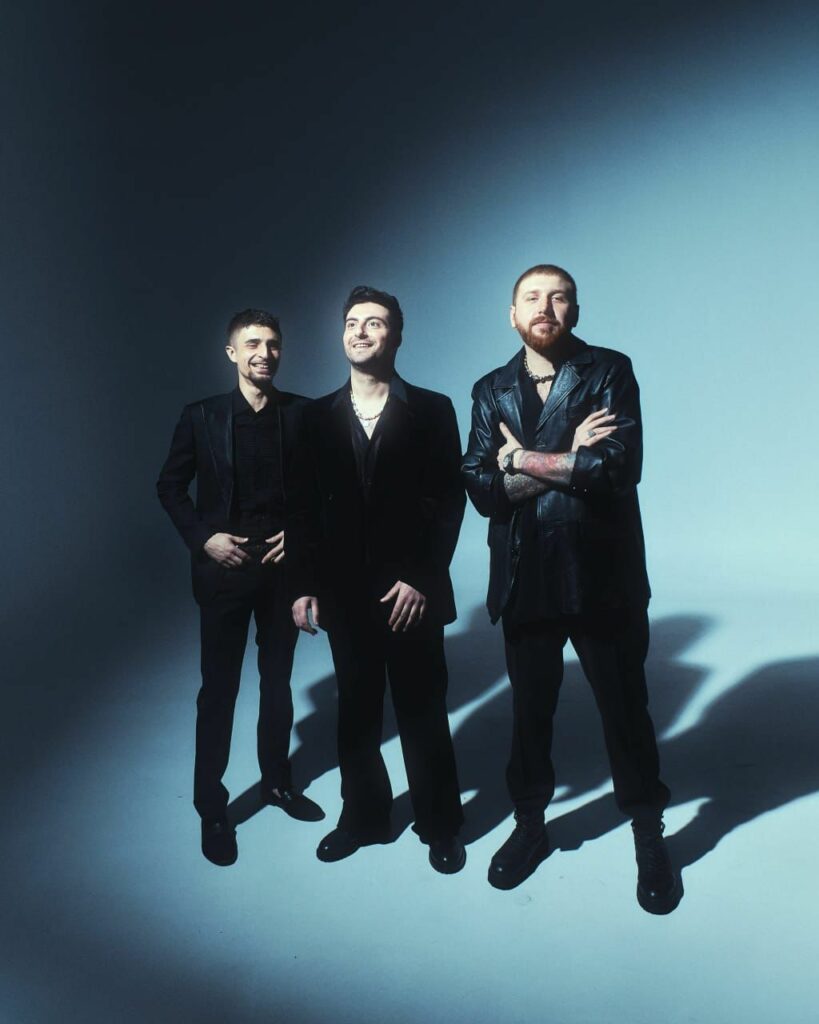Asaf Mishiyev: Azerbaijan’s Jewish Eurovision entry

Staged every year in May, The Eurovision Song Contest may be the world’s campiest, kitschiest spectacle – a cheesy fever dream of dance and song beamed to millions across continents, a guilty pleasure more famed for its extravagance than music – but it frequently features a geopolitical edge.
In 2016, Ukraine’s Jamala won the grand prize with her melancholic number, 1944, a tribute to the Crimean Tatars persecuted during the Stalin era – but also a swipe against Russia, which had once again occupied Crimea just a couple of years earlier. When Ukraine triumphed again in 2022, it came just a few months after Moscow launched its full-scale invasion, after European audiences rallied behind the Kalush Orchestra to collectively rebuke Russian aggression.
At Eurovision, geopolitics and high camp go hand-in-hand. This year will be no exception.
Azerbaijan has selected Mamagama, a three-piece electro-pop group featuring a Jewish lead, to represent the Muslim majority country. Against the tense geopolitical backdrop, this choice is a statement in itself. Instead of echoing regional grievances, the band aims to project a message of tolerance at a time when it appears to be in short supply across the globe.
Each member is from a different ethnic group. Singer Asaf Mishiyev is Jewish, whereas his bandmates, guitarist Hasan Heydar and drummer Arif Imanov, are Lebanese-Russian and ethnic Azeri respectively. Although the country is nearly 95 percent Azeri and majority Muslim, it is a secular state where religious or ethnic tensions are practically non-existent. Mamagama have said that they’re like a miniature model of Azerbaijani capital Baku, in this respect: “There is total tolerance here,” explains 32-year-old Mishiev. “Jewish holidays are celebrated alongside Muslim holidays, so we all celebrate each other.”
It’s difficult to imagine another predominantly Muslim nation this year sending a Jewish singer as its representative to Eurovision. But Azerbaijan boasts a proud Jewish heritage. It is home to one of the oldest continuously existing Jewish communities in the world – remarkable not only for its longevity, but for its survival in a predominantly Muslim region. These are the Mountain Jews, a distinct ethnic group believed to be descended from Persian-speaking Jews who fled persecution in ancient Persia. They settled in the remote Caucasus mountains – in modern-day northeastern Azerbaijan – in the fifth century AD. Although Mishiyev was born in Azerbaijan’s capital Baku, his family come from this community, which has long coexisted peacefully with its Muslim neighbours and maintained a unique Judeo-Persian dialect, traditional dress, and customs.
Azerbaijan’s decision to elevate a Jewish singer to represent it on the Eurovision stage is a bold move. Last year’s contest was marred by controversy as both competitors and protesters called for the Israeli entrant, Eden Golan, to be disqualified as punishment for her country’s recent military operation in Gaza. The Azerbaijani entrants, Fahree and Ilkin Dovlatov, were notable in staying out of this debate – perhaps out of a desire to remain apolitical or perhaps reflecting the country’s warm ties with Israel. But Mishiyev doesn’t shy away from expressing his own personal affinity for the Jewish state.

“I can speak Hebrew. I studied at a Jewish school here — there are two Jewish schools in Baku,” he says. “Our relations with Israel are very strong. I feel like I’m not only representing Azerbaijan, my country, which I’m proud to represent but also the Jewish people because my parents are Jewish.”
The two nations have built close ties with one another for more than three decades. In 1992, Israel was among the first states to establish diplomatic relations with Azerbaijan after the country regained independence following the Soviet Union’s collapse. The pair enjoy strong trade links and provide support for one another in various international bodies. In 2023, Azerbaijan became the first country with a Shia Muslim majority to open an embassy in the Jewish state. This year, it became the first Muslim-majority to incorporate a definition of antisemitism into textbooks.
These political dynamics aren’t exactly at the forefront of Mamagama’s music, but they are nonetheless a symbol of it. Their entry “Run With U”, is a high-energy, synth-driven pop anthem that blends retro-futuristic flair with traditional Azerbaijani influences – including the use of the saz, a national musical instrument. The accompanying music video is set in a dark, dystopian future where frontman Mishiyev is assembled together like some sort of singing cyborg – a nod to resilience or reinvention. But ultimately, according to Mishiyev, the band wanted to write an uplifting pop hit that would resonate across borders.
“[It’s] a pop song about love like all pop songs are,” he says. “I wanted the lyrics to resonate with people, to be something that can connect people across borders.”
At Eurovision, which takes place in Basel on May 13, Mamagama will get a chance to do just that.
Rolling Stone UK publishes articles from a variety of contributors which express a wide range of viewpoints. The positions taken in these articles are not necessarily those of Rolling Stone UK.
